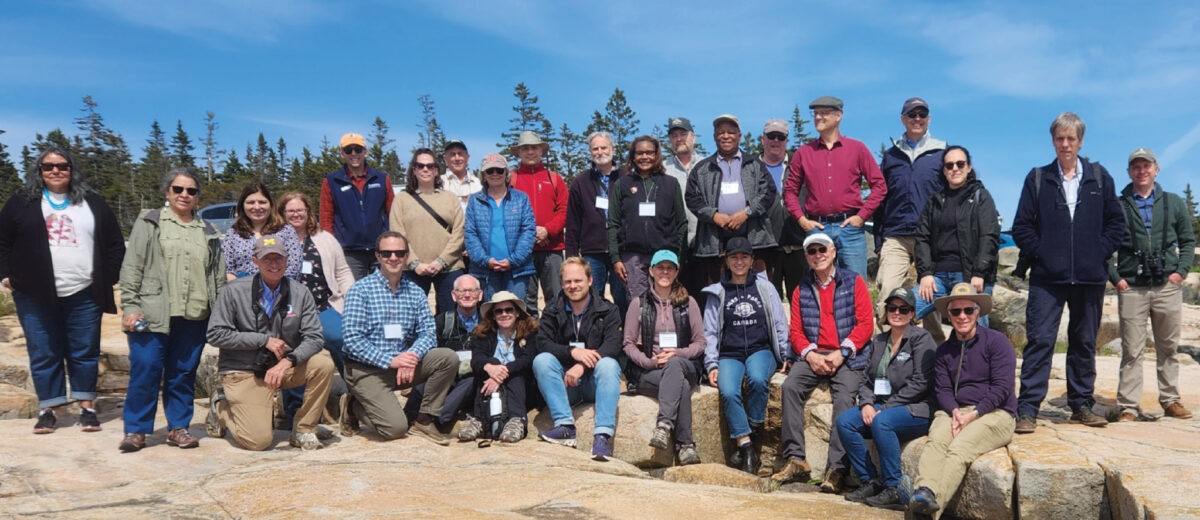by Nick Fisichelli; banner photo by Dave Harmon
We recently hosted a group of international conservation professionals from South Africa, Australia, Italy, Belgium, the UK, Sweden, Canada, along with staff from across the US National Park Service (NPS) and the National Park Foundation. This capacity building workshop was led by the NPS Office of International Affairs and the George Wright Society with support from the International Union for the Conservation of Nature (IUCN) to identify key learning and training needs of protected area managers around the world. No surprise, workshop participants identified global change issues, including climate change, invasive species, habitat fragmentation, and pollution, as critical challenges across protected areas.
During the workshop, Schoodic Institute and NPS staff in Acadia shared the science and stewardship approaches we are applying and refining here locally through public-private partnerships. Our staff, Dr. Chris Nadeau (Climate Change Adaptation Scientist), Dr. Hannah Webber (Marine Ecology Director), and Dr. Suzanne Greenlaw (Post-doctoral Restoration Scientist) shared their work on implementing the RAD (Resist-Accept-Direct) framework for climate change adaptation, working with a diversity of people (who have different and sometimes conflicting goals), and centering Indigenous knowledge and co-stewardship approaches in park management.
We also learned much from others in the workshop, including how Parks Victoria in Australia is applying the RAD framework for managing ecosystem transformations. It is immensely gratifying to be a small part of this global community of conservation scientists and practitioners at the leading edge of the response to global change.

